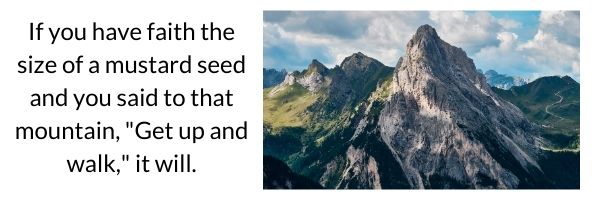
May all beings be at peace, may all beings be free of suffering. May all beings remember who they are. I was really excited about this particular title: “Jesus, a Great Metaphysician.” The first draft of this talk turned out to be a two-hour college lecture for theology class, and I decided that didn't work too well. I had to sit down with that for a while because I'm used to teaching classes. I had to ask myself what was missing maybe because I had a lot of good stuff in it, but it was all up here as well. How do we get, how do we get here?
It began to dawn on me something I missed. I think perhaps, for those of us who been attracted to the New Thought religions or schools of spirituality, we got hooked into the message which is important because it didn't destroy the old message, but there was so much more truth to it. It really did open our hearts and let go of a lot of blame, shame, and guilt, that stuff that we've been carrying around with us for centuries. But I began to realize that it's not just the message, it's the presence. I'm sure there have been teachers in your life. At least I hope there have been a lot of teachers who you probably remember to this day. You might not even remember what subject they taught you, but what you may recall is their presence with you, how they, on some level of their being maybe without even trying a whole lot, simply honored your presence. And they were open to your questions. They were open to how you were searching for things, and they were willing to give a part of themselves to you, no matter what the subject matter might've been. It began to become a little bit more clear to me that Jesus' role as a metaphysical teacher was not just a whole bunch of nice ideas, but it was his presence that allowed the message to become alive. It was his presence that allowed the message to become real. Sometimes I find myself missing that that reality, getting more in touch with the message than I am with the presence.
What I began to discover as I was putting this together was exactly what I talked about in our meditation this morning. What would it be like to be, to be in the presence of unconditional love? What would it be like to see this as the meaning of Jesus and his teaching? Not words, not books, not paraphrase, not warmed over lessons, not interpretations of somebody else's interpretation, but the truth and reality of what it would be like and what kind of response it would make. If I was in the presence of unconditional love, how would that affect me? How would that affect how I looked at myself? How would that affect how I looked at you? How would that affect how I look at the world? If I realized no matter what, no matter how I felt, no matter what was going on in the external world around me, that I was still in continually and always in the presence of unconditional love, what would happen to fear? What would happen to being right? What would happen to judgment?
Everything we see in here today through all of these channels are all saying the same thing. The only reason why they're attractive is they're dressed up in new clothes. We get kind of hooked on the clothes rather than the message.
I remember a teacher walked up to a student one time and the student said to the teacher, "How come you keep telling us the same thing?"
And the teacher said, "Because you'd never listened."
There's a story told of the apostle John, who is the last of the apostles to remain alive here on planet earth. He was living in a kind of a faraway land, old and somewhat decrepit. Every morning they would wheel him out onto a patio and he would talk to this group of people that would gather there, who were always waiting. I mean, this is one of the last people that knew Jesus alive. So they were really waiting for this knockout kind of message. And they would all gather every morning when his friends and disciples would wheel him out onto the patio. He would look out at the front of this group of people and go, "Little children love one another." Then he would turn around and go back and everybody would go, "What was that? What's the rest?"
What he was saying was there is no rest. That's it. If you could get that through your thick heads, "Little children love one another." They wouldn't have to do anything else, there would be no other place you would have to go, it's right there. Little children love one another. And maybe it's the message itself, as well as the presence that was so radical, that it took 2000 years to begin to recognize as being the truth. We're still doing that. We're still understanding the radicalization of that. To love your neighbor, to do good towards those who hate you.
In the East they make a distinction between a teacher and a guru. A teacher shows the way, the guru is the way. This sounds familiar. "I am the way, the truth, and the life." I am, so are you. I become so wrapped up in so enamored of my own presence with the presence of one or two other people that I forgot how deeply we are connected with one another. I lose track of that one. I lose track with the presence of unconditional love. When I fall into judgment, or I turn on the television, even when I sit down down meditating and I can't seem to quiet my mind, I get back into judgment, I say it must be something wrong with me. "Little children love one another."

What I did was I sat down and I just allowed some thoughts to come to me as some ways that this teaching and this message and this presence could come together with each one of us. The first thought that that occurred to me was this phrase, this idea that somehow or another, we have so terribly distorted. And that is, "Oh Lord, I am not worthy." So much of it comes down to feeling or experiencing ourselves as being worthy of unconditional love, which is garbage.
If you go back to the original story, there was a guy who was in charge of the synagogue. He had servants under him and he came up to Jesus and he said, "Jesus, would you please heal my servant?"
He says, "Where do you live?" He gestured down the road.
Jesus started following him. And the guy said, "No, wait, stop. Oh Lord, I am not worthy that I should enter into my roof, but only say the word and I shall be healed. My servant shall be healed." In other words, "I don't want to bother you. I don't want to take your time. You can work the miracle of healing my servant right here, right now in this place, where you're standing. You don't have to go six miles away. It doesn't have anything to do with me being bad, or being limited, or being wrong, or being unworthy. I don't want to waste your time. You can do that miracle right here. Right now." That's the old saying. And so that particular phrase was adopted by a whole bunch of people who thought this is a great way of controlling everybody else, because if they don't feel worthy, then they're going to have to come to me to get worthiness.
As soon as that message got out there it is distorted in this twist. As it might have been we could have started looking out there for the truth right then and there.
"Oh Lord, I am not worthy." Bologna.
Don't do anything to become worthy. You already are unconditional love. You already are worthy. There is nothing that can get in the way of that. That's why we say the kingdom of heaven is within you. Where else could it be? And if it's within you, it's within everyone and everything else. Even Paul said this, "Absolutely nothing can separate you from the love of God." Nothing, not even how you think, how you feel, not even your sense of unworthiness, that it wasn't even yours to begin with. Nothing can get in the way.
Nothing.
How are you loved? "I love you," Jesus said, "With an everlasting love." If I could get that one, just get it, how would my life be different? How would my relationship with myself be different? How would my relationship with you be different? I love you with an everlasting love.
The people he had the most run-ins with, the scribes and the Pharisees, were the people who said "You are what you do. You are what you look like. You are what you appear like. And if you follow these rules and regulations, then you are okay. And if you don't, there's something wrong with you." And the biggest objection he had was that's not who you are. You are a divine child of God. There's absolutely nothing getting in the way of that. So you screw up once in a while. So you make a mistake. So you fall asleep. Does anyone condemn you? Neither do I condemn you. I'm not judging you. I never have. And I never will. I'm not even judging the scribes and the Pharisees. I'm getting annoyed and angry at them because the only way I can think that can wake them up. If I keep pushing, maybe they'll realize that whatever it is they're selling isn't what they're supposed to be selling.
There were some who responded to that. Nicodemus, especially, was so scared to let out in public, that he was okay with what Christ was saying, but he knew it in his heart. He took Peter, James, and John with him one day and went up to the mountain top of Mount Tabor, and he showed himself as a being of light. He said to them, "This is who you are too. This is not just me putting on a little light show for you. This is who I am. And because this is who I am, this is who you are."
The Golden Rule: Love God and love your neighbor. Books of wisdom say, love God, love your neighbor. All the rest is commentary. If you love yourself and love God, you will love your neighbor. Love God and do what you please. That always knocks me out because my ego is thinking, "If I love God and I do that, I can do this." That's not it. If I love God and love my neighbor, I knew everything that I do is going to be a reflection of love.
The father knows the prayer of your heart. Even before it is spoken ask, and you shall receive; seek, and you shall find; knock and it shall be opening. What father would give a child, a snake when he asks for a fish; or a rock, when he asks for a loaf of bread; or a scorpion, when he asks for an egg? An earthly father would not do something like that. What about your heavenly father?
He already knows the needs of your heart before you even speak them. How many times have you been lost in prayer? When have I been asking for something that I thought I needed, but it really wasn't what I needed? How many times have I gotten what I asked for sometimes and found out that I didn't want anyway? The father knows the prayer of your heart. Can I open myself to that as being the truth and saying father, here's what I think I need? Here's what I think I want. But you know him better than I do, better than my limited personality self. I'm putting my prayer, my open-heartedness in your hands.
The New Testament is filled with parables that have lessons that are so practical and yet so beautiful. One of my favorites is that of the prodigal son, because I always identify with the prodigal son, he messed up, wanted his money right now, went out, spent it, blew it all on stuff. Then he is sitting in the pig pen, feeding the pigs. And he says to himself, "You know, even the servants in my father's house have better food than I have. I know what I'll do. I'll go back to my father, and I'll give him a little speech. I'll say, 'Father, I've sinned against you and against God, blah, bblah, blah.' And at least things will be better than they were." His father has been looking for him every day, standing at the top of this hill, a little old man. He sees his son and rags and pig poop walking along the road, coming back home. He runs to him and embraces him. The guy has his little speech prepared, "Father I've sinned against God sinned against..." And his father stops him, saying "Get my son a robe, get him a ring for his finger, kill the fattest calf because my son was lost and now is found. The essence of that particular parable was that the prodigal son thought he was so far away from his father, but he never left his father's love.
"It's always there, son. You might've traveled far in the physical world, but you never left my heart. The reason you've never left my heart is because you never could leave my heart."
Karma. You've wrapped up the whole karmic message in one little sentence. He didn't read a book about it, didn't write 10 books about it, didn't write a big book about it, didn't go into past lives. He said, very simply, "You reap what you sow."
You reap what you sow.
It is easier for a camel to pass through the eye of a needle than it is for a rich man entering the kingdom of heaven. It was not an impossibility. That was a sort of Middle Eastern metaphor. There was a gate in Jerusalem that was called the eye of the needle. In order for a camel carrying a full load to get through it, the camel had to go down on its knees and crawl through. One of the most beautiful, sad moments in scripture was when a rich young man talked to Jesus and said, "What do I need to do to be saved? I obey the commandments, I do all those things."
Jesus said, "If you will be perfect, if you really want to follow the path, let go of all of that stuff you own because that's not who you are." That's the rather free translation. But I think it's pretty close to the truth. The rich man looked away and walked away because he had many possessions. God that's heartbreaking. I can't do this because I'm so attached to these things because I think they are who I am. I could go on with this for another few hours, but I'm not going to.

If you had faith the size of a mustard seed and you said to that mountain, "Get up and walk," it would. This is not a judgement on myself, but I wonder where is my faith? If I tell a little grain of sand to move a couple of centimeters, I can't do that. But I do believe it's true. If you have faith, the size of a mustard seed, say to that mountain, "Get up and walk," and it will. We do that all the time in Unity with healing. When I hold you in the light, in the truth of who you are, that's what Jesus did. How did Jesus heal people? This is a message and a lesson that comes from energy. Not necessarily saying something, but essentially the way he healed people.
My sense of this is, I see the truth in you, I see the perfection in you. I even see the perfection in your body. My sense of your perfection is so powerful that it overcomes your sense of illness and limitation. What can I learn from now on holding yourself in that light, holding others in that light? What do you do with the outside world? You deny that, say it's an illusion.
The Scribes and the Pharisees were trying to trap him one afternoon by asking him a question, very similar to that. Who do we pay? What do we do with taxes? Who do we pay tribute to? He said, "Show me a coin of tribute whose face is on there? Caesar's. Again, a one-liner: "Render therefore to Caesar the things that are Caesar's and to God, the things that are God's." They're all even.
Each one of us is going to have to work out what that means to each one of us. I'm not going to tell you what that means, but it is such a beautiful, concise message. What am I supposed to do? Am I supposed to deny the outside world, pretend that it's not there, make it into illusion? Or am I supposed to deal with that in the best way? I know how connect to my own spiritual alignment, with the truth of who I am and the truth of who God is for me, what's important in life. What are my values supposed to be? How do my values affect me? Your treasure is also talking about a way of becoming aware every moment of every day what is going on with you and how you're responding to the world, and whether you're responding to the world with the highest vibration possible. Where your heart is there, your treasure is also.
Here's the whole message: Nothing truly exists, except unconditional love. I will give you the strength and the wisdom and the courage to be able to put it into practice. In truth, the message is a reflection of who you are, not what somebody told you, not what you learned from your family, not what you learned from your church, nothing that you learned from your own limited consciousness, but a reflection of the truth of who you are. When you call to mind and heart the presence of the Christ Consciousness with you, to you, and through you, there is absolutely nothing that can get in the way of your truth.





